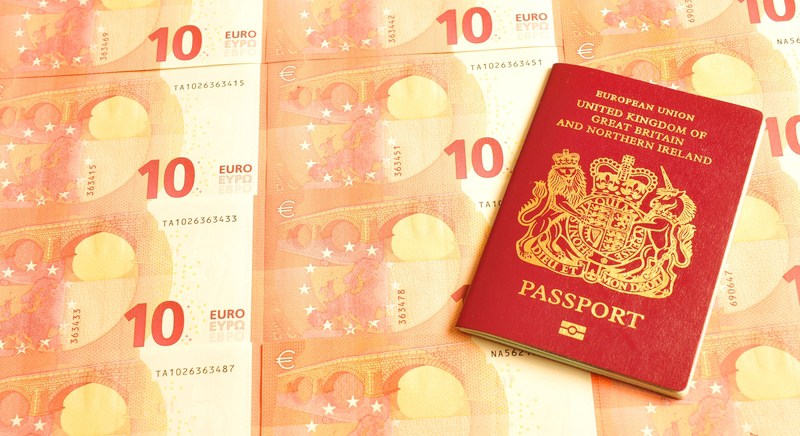Investec Switzerland. Foreign-exchange traders, bracing for chaos on the night of Britain’s European Union referendum, are preparing to fall back on techniques perfected before the era of computerized transactions. © Lucian Milasan | Dreamstime.com Banks are ready to draw on lessons learned after some electronic platforms failed during the storm of volatility that followed the Swiss National Bank’s shock decision to remove its currency cap last year. One key failsafe as the U.K. counts votes on whether to leave the EU: increased trading over the phone. Voice communication will complement electronic and automated transactions in the hours after the June 23 results are in, to make sure that an expected rush of trades will be filled, or given the best available price. While electronic platforms work according to pre-determined settings that are faster, they have less flexibility to react to volatile market conditions. “Trading over voice is an old-time feeling,” said Nicola Giuliani, a currency trader at Iccrea Banca in Rome who is considering working through the night. “Voice trading is a completely different feeling than electronic trading. Panic, pressure to close the trade, adrenaline flowing.” Embedded in traders’ minds is the memory of the SNB’s move to abolish its ceiling on the franc last year.
Topics:
Investec considers the following as important: Brexit Swiss franc, Business & Economy, Editor's Choice
This could be interesting, too:
Investec writes Federal parliament approves abolition of imputed rent
Investec writes Abolition of imputed rent gets bogged down in complexity
Investec writes Swiss parliament accepts contentious budget
Investec writes Tourism one quarter of Switzerland’s traffic
Foreign-exchange traders, bracing for chaos on the night of Britain’s European Union referendum, are preparing to fall back on techniques perfected before the era of computerized transactions.

© Lucian Milasan | Dreamstime.com
Banks are ready to draw on lessons learned after some electronic platforms failed during the storm of volatility that followed the Swiss National Bank’s shock decision to remove its currency cap last year. One key failsafe as the U.K. counts votes on whether to leave the EU: increased trading over the phone.
Voice communication will complement electronic and automated transactions in the hours after the June 23 results are in, to make sure that an expected rush of trades will be filled, or given the best available price. While electronic platforms work according to pre-determined settings that are faster, they have less flexibility to react to volatile market conditions.
“Trading over voice is an old-time feeling,” said Nicola Giuliani, a currency trader at Iccrea Banca in Rome who is considering working through the night. “Voice trading is a completely different feeling than electronic trading. Panic, pressure to close the trade, adrenaline flowing.”
Embedded in traders’ minds is the memory of the SNB’s move to abolish its ceiling on the franc last year. Market makers booked millions of dollars of losses following the announcement, banks battled to process orders and margin calls for extra deposits were dispatched to customers. The franc strengthened more than 40 percent against the euro in the minutes after the central bank’s decision on Jan. 15, 2015, and some investors and analysts are predicting losses of at least 20 percent following a Brexit.
Other potential measures to weather the vote include an increase in margin requirements for sterling trades, which would increase the buffer for banks and brokers if large swings are immediately reflected in big losses. Banks are also fine-tuning the settings of their trading platforms in order to pull the emergency brake if needed, and planning to staff trading desks during the night, while retail platforms are taking steps to avoid a repeat of the turmoil that followed the SNB’s decision.
Lessons Learned
“People will likely apply the lessons learned from the Swiss franc event last year and margin requirements are already increasing for pound positions,” said Thomas Stolper, founder of advisory firm Embankment in London and a former currency strategist at Goldman Sachs Group Inc. Traders may “potentially override the electronic trading systems to deal with the unusual liquidity conditions,” he said.

© Dgrilla | Dreamstime.com
Volatility in pound exchange rates has soared before the vote, suggesting investors are increasingly nervous over prospects the country will decide to leave the EU. One-month implied volatility in the pound against the dollar rose to 22.4 percent on Wednesday, its highest level since February 2009.
Frederic Ponzo, managing partner of consultancy Greyspark Partners in London, said another reason why voice may be favored over computerized trading is that it will allow traders to override electronic pricing platforms, which could halt a trade in case of very high market volatility, as expected during the night.
Pound Volatility
The pound was at $1.4503 as of 6:55 a.m. London time on Thursday. It slid to a seven-year low of $1.3836 after the vote was announced in February, and is the worst performing Group-
of-10 currency this year.
Institutions including the International Monetary Fund and the Organisation for Economic Cooperation and Development have warned of dire consequences if the U.K. votes to leave the world’s largest single market. Sterling has whipsawed during the campaign as polls forecasting the outcome have swayed between signaling a victory for the pro-EU camp to one for the ‘Leave’
campaign.
The phone will probably only supplement electronic trading, which will still be used. Traders and analysts also suggested that the market debacle that followed the SNB surprise decision won’t be re-lived this month.
“The market has had plenty of time to prepare,” said Javier Paz, senior analyst at consulting firm Aite Group. The event will not be a “catastrophe,” he said.
Taking Action
Retail brokers, which faced the brunt of losses following swings in the franc, are already taking action. Danish currency trading bank Saxo Bank A/S has raised margin requirements on pound trades more than threefold, and New York-based FXCM Inc.
has said it is also taking measures. Following the franc crisis, FXCM faced a shortfall when customers lost money; it was rescued with a $300 million loan by Leucadia National Corp.
The chances of extreme swings in the pound when the results are released are compounded by the fact most regions will release voting details overnight, when volumes are typically lower. The final result of the vote is due to be announced at about breakfast time, according to the U.K.’s Electoral Commission.
“No matter the outcome of the vote on June 23, we expect to see a rise in volatility in the markets in the short term,” said Martha McKenzie-Minifie, a spokeswoman for ING Groep NV. “We are planning to have staff in the London office overnight to monitor the latest information as it is released and interpret potential market impact.”
By Chiara Albanese and Stefania Spezzati (Bloomberg)
